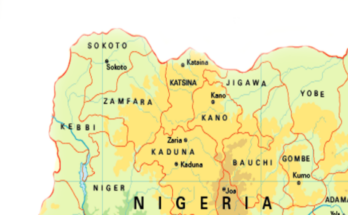The first time I came across similar term was in Malaysia in 2011 (I think) which was termed as Najinomics: Meaning the economic ideas and policy initiatives of the current Malaysian Prime Minister Tan Sri Najib Abdurrazak. On its background, as was argued by my senior colleague Dr Mohammed Irwan Serigar, Secretary General to the Treasury, Malaysia, it is based on equity and justice thus conforming to Islamic economic principles. The arguments and articulations were somewhat convincing. Now, that is their case. In fact, the good thing about their approach is its simplicity and realistic.
Now comes a term Buharinomics. Not trying to gauge my hero so far, but making some comparative analysis for the government to take some lessons. Buharinomics therefore could be defined as the economic ideas and policy initiatives of President of Nigeria MuhammadU Buhari aim to transform Nigerian economy and provide conducive environment for the welfare improvement among Nigerians.
The concept is full of vision for the society. However, previously the former CBN Governor Chief Soludu accused the government for not having any economic blueprint to salvage the country from recession and put it on the path to economic growth. Almost two years later, the economic team of the government proves itself as lacking the wherewithal to bring the much expected welfare improvement among the average households in the country.
The causes for such deficiencies include: inconsistent policies which implies lack of careful planning in the development of the policy; delay in responding to situations and economic issues, and complicated policies – for instance, as a student of economics, I know that lower taxation, tax holidays, government spending, incentives to Small and Medium Enterprises (SMEs) will lead to higher supply of goods and services, thus lowering prices as well as increase in employment and income.
Some of the foreseeable solutions to this include but not limited to, namely, one, deliberate macroeconomic and developmental planning that will cut across various sectors and segments of the society; Two, quick and responsive policies that address cyclical fluctuations in the economy and the ones that will ensure vibrant and steady growth of the economy especially in the Small and medium enterprises and agriculture where the government rightly chooses as a priority; and three, simplified policies that address the problems directly.
In conclusion, Buharinomics is desirable idea and policy initiative but suffers from expertise and articulations to achieve the desired result. If this missing link is filled, it is expected the concept could transform the country`s economy and put it on the path to sustainable economic growth. Meanwhile, private sector, government, households and NGOs must play their respective roles for the economy to reach the Promised Land. We pray to Allah to give Mr. President the wisdom, health and strength to implement favorable policies for all Nigerians.
Dr. Aliyu Dahiru Muhammad,
Kano



